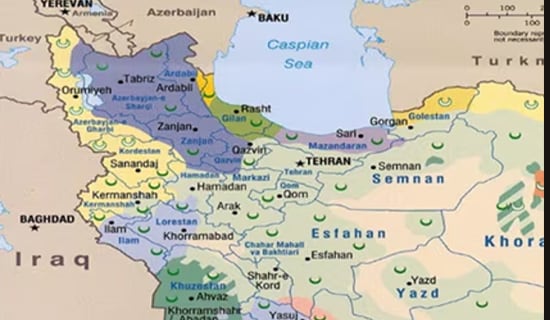
Two separate propositions about Afghanistan can be and are true at the same time:
The U.S. could probably have remained in the country under the current status quo situation supporting the Afghan government for years without major loss of life, but with considerable continuing financial costs.
The American people, in a moment of rare bipartisan consensus in a divided nation, are generally glad to see an end to direct U.S. military involvement in Afghanistan, considering it a waste of time and resources.
President Biden's administration chose a poor date for a withdrawal – September 11, the 20th anniversary of the most successful terrorist attack in history, organized from Afghanistan – but it built on momentum started by the Trump administration to accelerate an American withdrawal. One can't help but think that if the Biden administration wanted to avoid using Trump's May 1 withdrawal date, November 14 would have been a better day than 9/11. November 14, 2001 is the day Kabul was taken from the Taliban, in one day, by the Afghan "National Alliance" backed by overwhelming U.S. airpower.
While there is no doubt that this is a defeat for U.S. arms, and the Taliban are seemingly confident and advancing, much depends on what happens after U.S. forces leave and when it happens. Some 10,500 U.S. and NATO troops will leave, and probably a good percentage of the 16,000 foreign contractors currently in country will depart as well.
While U.S. and allied ground forces have played an important role, it is American airpower and American money that have been key in keeping the Afghan government in power. And it was not the Americans alone; NATO troops and especially NATO member money have helped keep the Afghan National Army (ANA) in the field, even though it seems the Taliban pay better. It is testimony to Western mission creep or noble unrealistic ambitions – or both – that in addition to funding the Afghan military, ANA Trust Fund money has gone to "strengthen good governance within the Afghan security structures – and to enhance women's meaningful participation within the relevant Afghan Ministries and security institutions."[1]
Certainly, the Afghan National Army and security forces will be tested as never before. More than 60,000 government security personnel have already been killed since 2001. A comparison will be made to see whether the current Afghan government and its security forces can defend themselves (after $88 billion spent on them) and achieve some sort of stalemate or fall more quickly than the Soviet puppet Najibullah regime. Expected to fall immediately after the withdrawal of Soviet forces in 1989, that brutal secret policeman was able to hold on for more than three years after the Russians left, losing slowly. As the Soviet Union collapsed, a sudden end to Russian aid – leading to a loss of airpower and money – would contribute to Najib's fall and eventually to him hanging from a lamppost near the presidential palace. The Taliban have promised to do the same to Afghan President Ashraf Ghani.[2]
Of course, the current Afghan government is nothing like the Communist dictatorship that fell in 1992. It is, first of all, not a dictatorship at all but a pseudo-democracy of sorts (also one of the world's most corrupt states).[3] Secondly, the Western-supported Afghan government is not isolated nor without friends. The Americans and NATO are not going to precipitously cut off funding to the ANA and that devastating American airpower may still be available. Neither of those substantial elements of American power are things that the Taliban can ignore but the group has weathered far more from the U.S. over the past two decades and not only survived but flourished.[4]
The best-case scenario for the U.S. is an Afghan government that is able to, more or less, keep the portions of the country it still holds.[5] It then uses that unlikely steadfastness to parlay into some sort of compromise deal with the Taliban.[6] This would be some sort of face-saving agreement that prevents what would be most embarrassing to the U.S., which is a kind of 1975 Saigon "helicopters-on-the-roof-of-the-U.S.-Embassy" scenario.[7] Such a deal could provide the U.S. with that "decent interval" a cynical Henry Kissinger saw as a goal for U.S. policy at the end of the Vietnam War: "two to three years between the withdrawal of US troops" and an enemy takeover.[8] While the Taliban have very little incentive to negotiate in earnest, they and their backers would prefer to capture something more than rubble if they take Kabul.[9]
But the most compelling element of the Afghanistan Endgame is not so much what happens to the current government, to Afghan civil society, to democracy, and to Afghan women and to human rights – all important things in and of themselves – in a new political dispensation.[10] Even very real terrorism concerns or Taliban threats against the Americans overstaying are less pertinent than the broader regional perspective.[11] The most interesting thing will be how the political-military struggle in Afghanistan can illuminate developing power politics in Eurasia within the new reality of a retreating West.
A clear Taliban victory, first and foremost, will be a victory for Pakistan, which has been so instrumental in the group's flourishing and survival for decades.[12] It would also be a setback for India, of course.
But aside from the two nuclear-armed sub-continent rivals, the role of regional powers China, Russia, Iran, and Turkey could be significant. Even the role of tiny Qatar, friendly to the Taliban, Iran, and Turkey, bears close monitoring. Will these other countries (aside from adversaries India and Pakistan) find a way to divide and share the Afghan pie, or will two or more contending sides with respective spheres of influence emerge?[13]
U.S. Secretary of State Blinken said recently that if the Taliban "have any expectation of getting any international acceptance, it's going to have to respect the rights of women and girls." That is not actually true.[14] It certainly applies to the West, but none of these regional powers make policy on the basis of women's or any other human rights. Iran may be concerned about the rights of Shi'a Hazaras (when not using them as cannon fodder in Syria), and Turkey may be interested in the rights of ethnic Afghan Uzbek/Turkmen, but these are not commitments based on rights as some sort of universal ideal.
The last time the Taliban – before 9/11 – were in power in Kabul they faced off against opposition backed by Russia, Iran, and India, who supported the Northern Alliance featuring the legendary Ahmed Shah Massoud and that hardy survivor Abdul Rashid Dostum. This round will be an early opportunity for us to see new Eurasian power politics, with a rising China working with or mediating between Pakistan, Iran and Turkey.[15] China has spoken of sending peacekeepers to Afghanistan, but this seems likely only within a context of assurances from its regional Muslim allies.[16] The Chinese are certainly not going to waste a trillion dollars there like the Americans did.[17] More than a return to the past, Afghanistan's fate may be a view toward Asia's future.
*Alberto M. Fernandez is Vice President of MEMRI.
[1] Nato.int/nato_static_fl2014/assets/pdf/2021/2/pdf/2102-backgrounder-ana-trust-fund.pdf, February 2021.
[2] See MEMRI JTTM report Afghan Taliban Envision Execution Of President Ashraf Ghani As They Hanged Dr. Najibullah At United Nations Office In Kabul In 1996, February 18, 2021.
[3] Ariananews.af/afghanistan-scores-dismally-on-corruption-perception-index, January 28, 2021.
[4] See MEMRI JTTM report Taliban Website: Hundreds Of Afghan Police And Administrative Officials Joined The Islamic Emirate In November 2020
[5] Longwarjournal.org/archives/2018/09/mapping-taliban-controlled-and-contested-districts-in-afghanistan-lwj-vs-us-military-assessments.php, September 8, 2018.
[6] See MEMRI Inquiry & Analysis Series No. 1532, Intra-Afghan Talks Deadlocked In Qatar, Taliban Mount Terror Attacks In 24 Afghan Provinces, Demand 'A Pure Islamic Government', October 2, 2020.
[7] Youtube.com/watch?v=wD64kYG-z5I, April 30, 2020.
[8] Historynewsnetwork.org/article/140712, accessed April 20, 2021.
[9] Youtube.com/watch?v=dOX-GWXgwM8, December 20, 2016.
[10] See MEMRI JTTM report Urdu Daily: Afghan Taliban Order Revival Of Shari'a Courts Across Afghanistan, March 11, 2021.
[11] See MEMRI JTTM report Afghan Taliban's Operational Chief Sirajuddin Haqqani Warns The Biden Administration Against Scrapping The Doha Agreement: 'We Have The Technology To Use Drones, We Have Our Own Missiles; This Time If The Mujahideen Resume Fighting, It Would Be Something [The Americans] Have Never Seen Before', March 3, 2021.
[12] Hindustantimes.com/world-news/india-afghanistan-criticise-pakistan-for-backing-taliban-meddling-in-afghan-affairs-101618586835936.html, April 16, 2021.
[13] See MEMRI Special Dispatch No. 9291, Russian Foreign Minister Lavrov's Visit To Pakistan Showcases Improved Relations Between The Two Countries, April 19, 2021.
[14] Washingtonpost.com/national-security/biden-afghanistan-decision-foreign-policy-process/2021/04/18/e45e3fec-a05d-11eb-a774-7b47ceb36ee8_story.html, April 18, 2021.
[15] See MEMRI Daily Brief No. 256, A New Alliance Rising In The East – Turkey, Azerbaijan, Pakistan, China – And Its Enemies – The U.S. and India, February 3, 2021.
[16] Scmp.com/news/china/diplomacy/article/3129707/china-may-send-peacekeeping-force-afghanistan-after-us-troops, April 16, 2021.
[17] Bbc.com/news/world-47391821, April 16, 2021.








